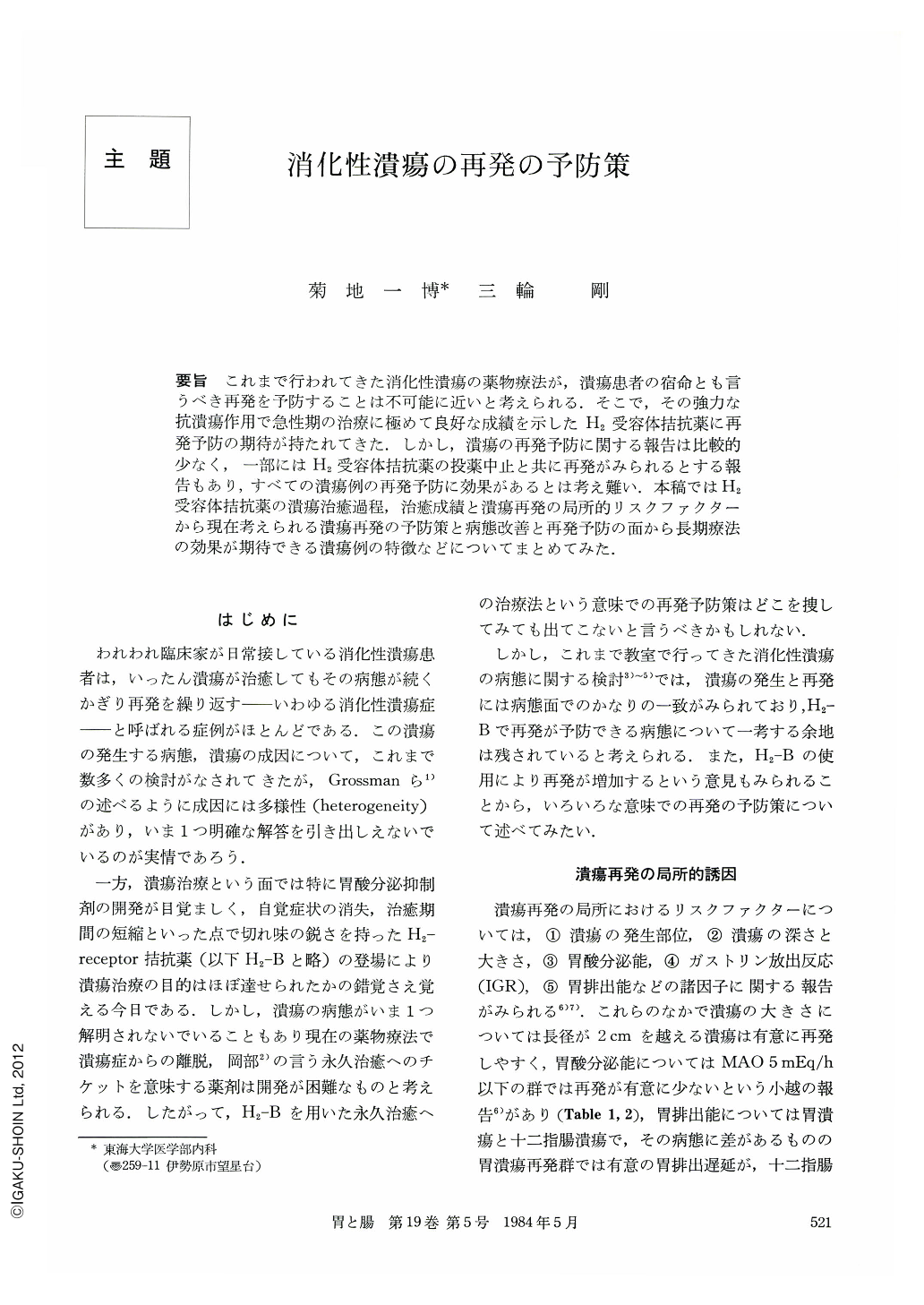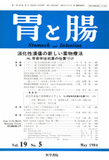Japanese
English
- 有料閲覧
- Abstract 文献概要
- 1ページ目 Look Inside
要旨 これまで行われてきた消化性潰瘍の薬物療法が,潰瘍患者の宿命とも言うべき再発を予防することは不可能に近いと考えられる.そこで,その強力な抗潰瘍作用で急性期の治療に極めて良好な成績を示したH2受容体拮抗薬に再発予防の期待が持たれてきた.しかし,潰瘍の再発予防に関する報告は比較的少なく,一部にはH2受容体拮抗薬の投薬中止と共に再発がみられるとする報告もあり,すべての潰瘍例の再発予防に効果があるとは考え難い.本稿ではH2受容体拮抗薬の潰瘍治癒過程,治癒成績と潰瘍再発の局所的リスクファクターから現在考えられる潰瘍再発の予防策と病態改善と再発予防の面から長期療法の効果が期待できる潰瘍例の特徴などについてまとめてみた.
Therapeutic measures to the peptic ulcer disease―hospital administration (rest), diet, stop-smoking and drug therapy―, have been shown to produce a high healing rate. These conventional medical therapy, however, could not prevent the healed ulcer relapse which was considered as a destiny of the chronic ulcer disease.
It is well known that H2-receptor antagonist is very effective as an anti-ulcer agent. In the short-term therapy, H2-receptor antagonist showed very high healing rate. Although, there were a few reports that discontinuation of this agent showed a high relapse rate in duodenal ulcer patients. Therefore, it is important to review the recent reports concerning about the long-term therapy of the H2-receptor antagonist. This article is a review of the H2-receptor antagonist in the prevention of chronic ulcer disease.
In conclusion, the present available most effective anti-ulcer agents―H2-receptor antagonist―could heal the ulcer more rapidly, but cannot prevent the healed ulcer from recurring if the administration of agent was discontinued in the red scarring stage. Maintenance therapy with H2-receptor antagonist should be taken for the patients who shows high acidity of the gastric juice. Effect of H2-receptor antagonist to the defence mechanism of gastrointestinal mucosa is unclear, so combined therapy with cetraxate and/or prostaglandins should be considered.

Copyright © 1984, Igaku-Shoin Ltd. All rights reserved.


